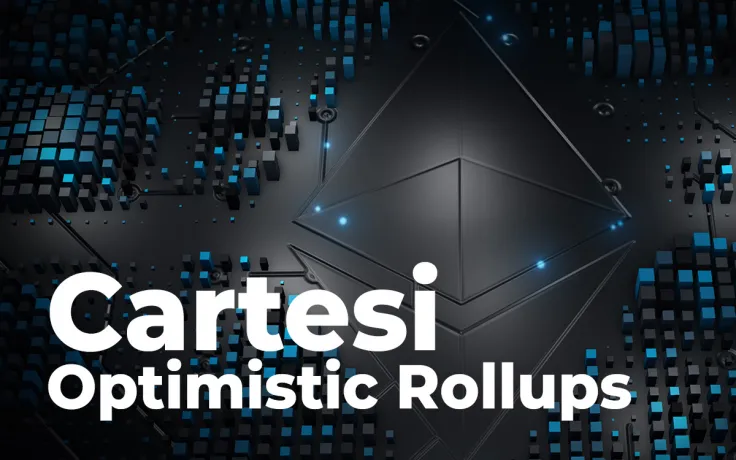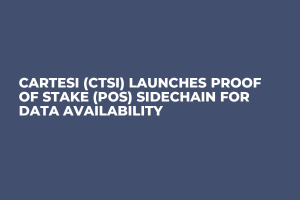
Cartesi (CTSI), a second-layer project tasked with addressing the problems of Ethereum (ETH) scalability, implements optimistic rollups. With this tool, Ethereum (ETH) transactions for decentralized applications (dApps) will see their costs reduced significantly.
Cartesi (CTSI) releases optimistic rollups, upgrades Ethereum (ETH) development experience
Following the introduction of their own virtual engine, Cartesi Machine, Layer 2 startup Cartesi (CTSI) unveils its own implementation of optimistic rollups, a popular Ethereum (ETH) scalability instrument.
According to a press release shared with U.Today, this upgrade will drive some transactional computations off-chain and reduce costs for in-dApp transfers. Cartesi's approach to optimistic rollups will allow developers to utilize for Ethereum programming the same development stacks they use for Linux-based apps, instead of the traditional Solidity.
With this upgrade, the original bandwidth of Ethereum (ETH) mainnet will be increased by orders of magnitude for all applications onboarded by Cartesi (CTSI). First, transactions occur on Cartesi Machine, before their results are broadcast to Ethereum Virtual Machine (EVM).
Also, Cartesi (CTSI) delivered a Noether sidechain that brings transaction costs for all dApps close to zero.
"Opening the doors" for non-blockchain engineers
Cartesi CEO Erick de Moura highlighted the importance of the new release as a significant milestone in the blockchain segment's road to maturity:
Allowing mainstream programmability means that DApp developers have an entirely new expressive power to create from simple to rather complex smart contracts. It also means opening the doors for extensive adoption of regular developers who have never programmed for blockchain, as they will create decentralized applications with a coding experience similar to desktop or web.
The virtual machine behind Cartesi's optimistic rollups solution is built on an emulation of RISC-V microprocessor architecture. Thus, its smart contracts are working on Linux-native runtime.
As a result, Cartesi-based OS can be utilized for the most sophisticated use cases in the Ethereum (ETH) decentralized applications ecosystem.

 Caroline Amosun
Caroline Amosun Tomiwabold Olajide
Tomiwabold Olajide